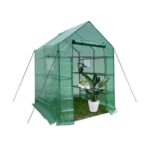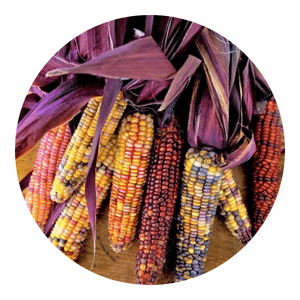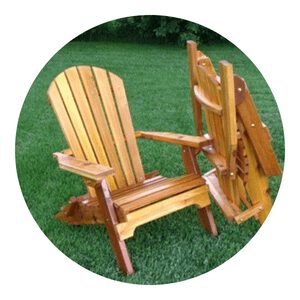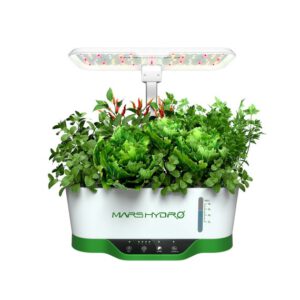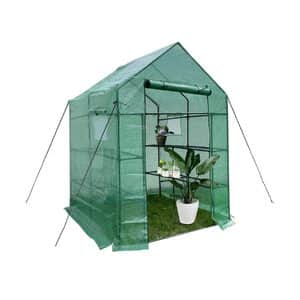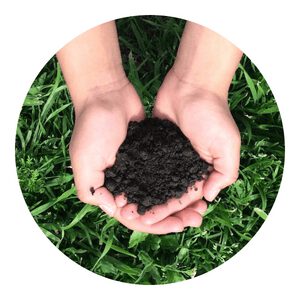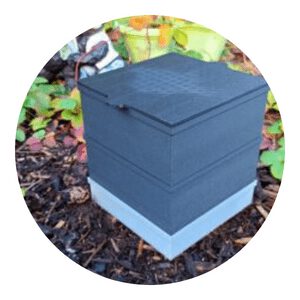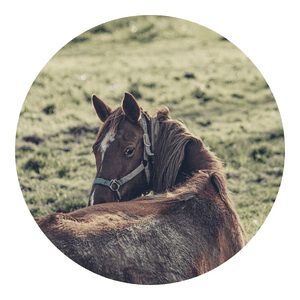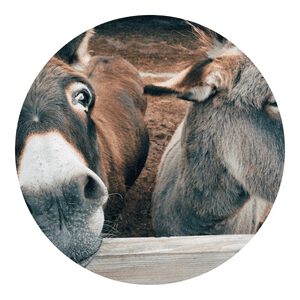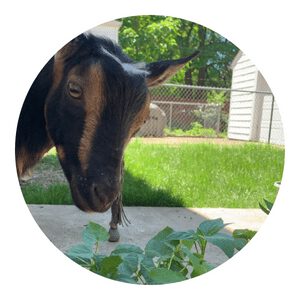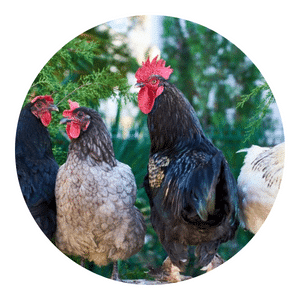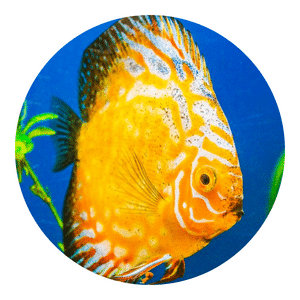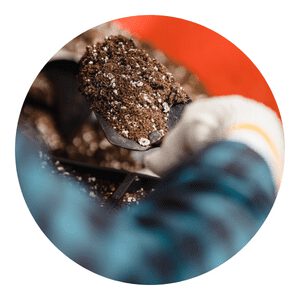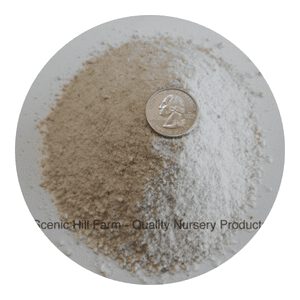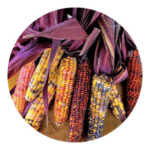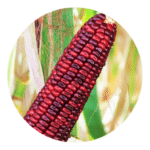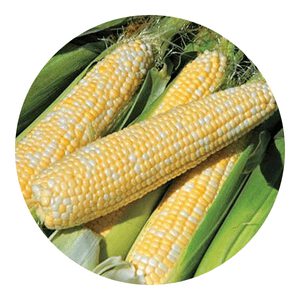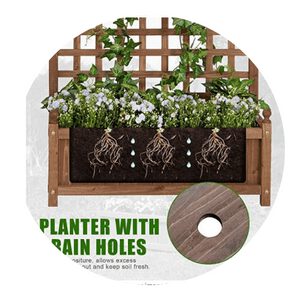How to grow organic corn
If you are wondering how to grow organic corn, you may have been wondering if there is any difference between conventional and organic varieties.
The answer is simple.
The first step is to choose an organic variety that meets the USDA’s standards.
Corn Menu
Corn – an annual plant from the cereal family, corn appears in a number of colors The most common is yellow but also appears in purple-black, red or colored.
The corn plant is relatively easy to grow.
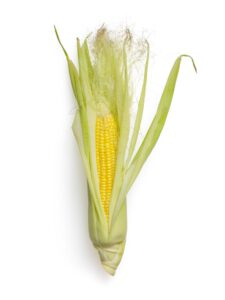
What is organic corn?
Organic corn is corn that is grown without the use of pesticides, herbicides, or other artificial chemicals.
Organic corn is also grown using organic farming methods, which include crop rotation, cover crops, and green manure.
Advantages of growing organic corn
Organic farming is an alternative to industrial agriculture.
Organic farming is the process of growing crops without the use of synthetic fertilizers, pesticides, or other artificial chemicals.
Some people believe that organic farming is better for the environment because it doesn’t rely on chemical fertilizers and pesticides.
Many people also believe that organic foods are healthier than conventionally-grown foods.
There is some evidence that organic foods contain more antioxidants and other nutrients than conventionally-grown foods.
How to grow organic corn
When planting organic corn, it’s important to find a spot in your garden that gets plenty of sunlight – at least six hours per day.
The soil should also be fertile and have good drainage.
Corn grows best in warm weather, so make sure to plant it after all danger of frost has passed in your area.
To plant organic corn, you’ll need to first prepare the soil by loosening it up with a tiller or hoe.
How to prepare the soil for corn planting
There are a few things to consider when preparing the soil for corn planting.
One of the most important is to make sure the soil is fertile and has the proper pH level.
The soil should also be well drained so that it does not become waterlogged during periods of rain.
If necessary, you can add amendments to improve the soil’s fertility and drainage.
How to plant corn seeds
In order to plant corn seeds, one must first understand the process of growing corn.
Corn is a warm season crop that grows best in full sun and fertile, well-drained soil.
The best time to plant corn in most areas is from late May to early June.
To plant corn seeds, first make a hole in the ground with a hoe or shovel.
The hole should be about twice as deep as the seed is wide and should be spaced 12-18 inches apart in all directions.
Drop 3-4 seeds into the hole and cover them with soil.
Gently water the area and wait for the seeds to germinate.
Corn typically takes 7-10 days to germinate.
Once the plants have reached about 3 inches tall, it is safe to thin them out so that only the healthiest plants remain.
How to care for corn plants
Corn is a popular garden plant because it is easy to grow and versatile.
There are several ways to care for corn plants, but the most important part is keeping them well-watered.
Corn plants need about 1 inch of water per week, so be sure to water them regularly, especially during hot weather.
You can also fertilize corn plants with a balanced fertilizer every 2 to 4 weeks.
To keep pests and diseases at bay, you can use organic or synthetic pesticides as needed.
How to harvest corn
The process of harvesting corn is a long one that begins with the early stages of planting and ends with the crop being stored in a barn or other building.
Farmers must take into account the time it takes for corn to mature, the height of the stalks, and the best way to cut the ears off without damaging them.
In addition, they must use care when removing the husks so as not to damage the kernels.
How to store fresh corn
The best way to store fresh corn is to husk it and refrigerate it in a plastic bag.
Corn will stay fresh for up to four days if stored this way.
If you want to freeze corn, blanch it first in boiling water for three minutes. Then, place the corn in a freezer bag and freeze.
Corn will stay fresh in the freezer for up to six months.
How Long Does Corn Take to Grow?
Corn is a staple crop in many parts of the world and can be grown in a wide range of climates.
It is a relatively fast-growing crop, with some varieties taking as little as 60 days to mature.
Corn is usually planted in the spring, after the last frost has passed. The soil should be warm and the air temperature should be above 20 degrees Celsius for optimal growth.
Once the seedlings have emerged, they will need to be thinned out so that only the strongest plants remain.
The plants will need to be watered regularly, especially during dry spells.
Corn is ready to harvest when the ears are fully developed and the kernels are plump and firm.
What Month Do You Plant Corn?
When it comes to planting corn, timing is everything. If you plant too early, your seedlings may get nipped by frost; plant too late and they’ll languish in the heat.
So when is the best time to plant corn? In most parts of the country, the answer is May.
Corn is a warm-season crop, meaning it thrives in temperatures between 60 and 95 degrees Fahrenheit.
At these temperatures, water evaporates quickly from the soil, so it’s important to keep your corn plants well-watered.
If you live in an area with a long growing season, you can sow your corn seeds directly in the ground in late April or early May.
But if you live in a cooler climate, start your seeds indoors about three weeks before you plan to transplant them outdoors.
Can Corn Be Grown in Containers?
Organic corn can be grown in containers with the right conditions.
The container should be at least 18 inches deep and have drainage holes.
Fill the container with a mix of two parts compost to one part sand. Water the corn regularly and fertilize it every two weeks with an organic fertilizer.
When the plants are about 6 inches tall, thin them so that only one plant remains per container.
Corn needs full sun to produce ears of corn, so make sure to place your containers in a sunny spot.
With proper care, you can expect to harvest fresh corn from your containers in about 70 days.
How to grow corn hydroponically
Hydroponics is a method of growing plants in a water-based solution without the use of soil.
This method can be used to grow many different types of plants, including corn.
Growing corn hydroponically can be done using different methods, such as deep water culture or nutrient film technique.
Deep water culture is a type of hydroponic growing where the roots of the plant are submerged in a nutrient-rich solution.
The solution is typically kept oxygenated using an air pump and stone.
Nutrient film technique is another type of hydroponic growing where the roots of the plant are exposed to a thin film of nutrient solution that flows past them.
To grow corn hydroponically, start by planting the seeds in starter cubes or plugs.
Once the seedlings have grown big enough, they can be transferred to their final growing container.
Can corn be grown in aquaponics?
Organic corn can be grown in aquaponics, but it is not as common as other plants.
Aquaponics is a method of growing plants in water, without soil. The water is recirculated and contains nutrients from fish waste.
Corn requires more nutrients than other plants, so it is not as common to see it grown in aquaponics. However, it is possible to grow organic corn in this way.
The water must be well-aerated and contain all the necessary nutrients for the corn to grow.
Corn is a high-maintenance plant, so growers must be prepared to put in extra effort to ensure that their crop is successful.
If you are interested in growing organic corn in aquaponics, be sure to do your research and start with a small scale operation.
How to grow corn in a greenhouse
Corn is a warm season crop that is usually planted in late May or early June.
However, if you want to get a jump on the growing season, you can plant corn in your greenhouse as early as March.
Here are some tips on how to grow corn in a greenhouse:
1. Choose a sunny spot in your greenhouse for planting. Corn needs at least 6 hours of sunlight per day to thrive.
2. Plant your corn seeds in soil that has been enriched with compost or manure. This will give them a boost of nutrients to help them grow strong and healthy.
3. Water your corn plants regularly, keeping the soil moist but not soggy. Hot, dry conditions can cause the ears of corn to shrivel up and become inedible.
Can you start sweet corn in a greenhouse?
You can absolutely start sweet corn in a greenhouse!
In fact, starting your sweet corn in a greenhouse can give you a head start on the growing season and help protect your young plants from harsh weather conditions.
Here are a few tips to get you started:
1. Choose a high-quality sweet corn seed variety that is suited for your climate.
2. Sow the seeds in well-drained, fertile soil about 1 inch deep and 4 inches apart. Water the seeds regularly so that the soil stays moist but not soggy.
3. When the seedlings are about 6 inches tall, thin them out so that only the strongest plants remain. Space them about 12 inches apart.
4. Once the plants are established, water them deeply and regularly during dry spells.
The best organic fertilizer for corn
Organic corn is a great source of nutrition for both people and animals.
It is also a versatile plant that can be used in many different dishes.
While you can use any type of fertilizer on your corn, organic fertilizers are the best option.
Organic fertilizers help to improve the quality of the soil by adding important nutrients. They also help to keep the soil healthy and free from harmful chemicals.
This is especially important for corn, as it is a very sensitive plant.
There are many different types of organic fertilizers available, but some of the best options for corn include manure, compost, and green manure.
Manure is a great source of nitrogen, which is essential for corn growth. Compost provides a range of nutrients that are necessary for plant growth, including phosphorus and potassium.
Compost
If you’re looking to add some extra nutrients to your corn plants, using compost is a great way to do it.
Compost is rich in organic matter, which helps improve the soil’s texture and drainage while also providing a slow release of nutrients that corn plants can use.
Here’s how to use compost as an organic fertilizer for your corn plants:
1. Add compost to your planting area before you plant your corn seeds. You can do this by mixing it into the top few inches of soil.
2. Apply a layer of compost around the base of each corn plant after it emerges from the ground. Be sure to keep the compost away from the stem of the plant so that it doesn’t rot.
3. Give your corn plants an additional boost by top-dressing them with compost once they’ve reached about knee-high.
Worm castings
Worm castings make an excellent organic fertilizer for corn. They are high in nutrients and help to improve soil structure.
To use worm castings as a fertilizer, simply work them into the soil around the base of the plant. You can also add them to compost or use them as mulch.
Horse manure
Horse manure is an excellent organic fertilizer for corn. It is high in nitrogen, phosphorus, and potassium, which are all essential nutrients for healthy corn plants.
Apply horse manure to your corn field in the spring, before planting.
Spread it evenly over the field, and till it into the top few inches of soil.
For best results, follow up with a layer of compost or another organic matter.
Cow manure
Organic corn is a nutritious and delicious addition to any meal, and it’s easy to grow your own with cow manure organic fertilizer.
Here’s how to use it:
1. Collect or purchase cow manure. If you’re collecting it yourself, be sure to do so from a clean area where the cows graze.
2. Spread the manure around the base of your corn plants, being careful not to get any on the leaves or stems.
3. Water the plants well so that the manure can start working its way into the soil.
4. Enjoy your delicious and healthy homegrown corn!
Sheep manure
Organic corn is a type of corn that is grown without the use of synthetic pesticides or fertilizers.
Sheep manure organic fertilizer is an effective way to fertilize organic corn.
To use sheep manure organic fertilizer, mix it with water and apply it to the soil around the base of the plants.
Be sure to wear gloves when handling manure, as it can contain harmful bacteria.
Donkey manure
Organic corn is a type of corn that is grown without the use of synthetic pesticides or fertilizers.
One way to fertilize organic corn is with donkey manure.
Here are some tips on how to use donkey manure as an organic fertilizer for corn:
1. Donkey manure should be composted before using it as a fertilizer. This will help to break down the nutrients so they are more easily absorbed by the plants.
2. The composted manure should be mixed into the soil around the base of the corn plants.
3. Water the plants well after applying the fertilizer.
Donkey manure makes an excellent organic fertilizer for corn. It is important to compost the manure before using it, and to mix it into the soil around the base of the plants.
Watering well after applying the fertilizer will help ensure that the plants get all the nutrients they need.
Goat manure
Goat manure is an organic fertilizer that can be used to fertilize organic corn.
Goat manure contains nitrogen, phosphorus, and potassium, which are essential nutrients for corn.
To use goat manure as an organic fertilizer, spread it evenly over the surface of the soil before planting.
Rabbit manure
Organic corn is a nutritious and delicious addition to any meal, but it can be expensive to buy at the store.
Luckily, growing your own organic corn is easy and economical, and using Rabbit manure as an organic fertilizer will give your plants a boost.
Rabbit manure is high in nitrogen, phosphorus, and potassium, which are all essential nutrients for healthy plants. It also contains other minerals that can help improve the quality of your soil.
To use Rabbit manure as an organic fertilizer, simply spread it around the base of your corn plants before watering. For best results, do this once every two weeks throughout the growing season.
Organic corn is a highly rewarding crop to grow, both in terms of taste and nutrition.
By using Rabbit manure as an organic fertilizer, you can be sure that your plants will have everything they need to thrive.
Chicken manure
Chicken manure is an excellent organic fertilizer for corn. It is high in nitrogen and other essential nutrients that corn needs to grow.
Applying chicken manure to your corn crop will give it a boost of nutrients, helping it to grow healthy and strong.
Here are some tips on how to use chicken manure as an organic fertilizer for your corn crop:
-Apply chicken manure to the soil around your corn plants, making sure to avoid getting any on the leaves or stems.
-Work the manure into the soil so that it is well mixed and there are no clumps.
–Water the area well after applying the chicken manure.
–Repeat this process every few weeks throughout the growing season.
Fish manure
Organic farmers have long used fish manure as a fertilizer for corn.
It is an excellent source of nitrogen and other nutrients that corn plants need to grow healthy and produce plentiful harvests.
Fish manure can be applied as a top dressing around the base of corn plants, or it can be mixed into the soil before planting.
When using fish manure as a fertilizer, it is important to take care not to over-apply it. Too much nitrogen can lead to excessive growth of leaves and stems at the expense of ears of corn.
It is best to err on the side of using too little fish manure rather than too much.
Green manure
Green manure is an organic fertilizer that can be used to improve the health of your corn plants.
Green manure is made by composting plant material, such as leaves, grass, and other organic matter. This process breaks down the plant material into nutrients that can be used by your corn plants.
To use green manure as an organic fertilizer, you will need to till it into the soil around your corn plants. This can be done before planting, or after the corn has already been planted.
You will want to till the green manure into the top 6-8 inches of soil.
Green manure can also be used as a top dressing for your corn plants. Top dressing is when you apply a layer of fertilizer on top of the soil around your plants.
This can be done every few weeks during the growing season.
Blood meal
An all-natural and organic way to give your corn plants the nutrients they need is by using blood meal fertilizer.
Blood meal is a powdery substance made from dried, ground up animal blood, and it’s high in nitrogen.
This makes it great for corn, which is a nitrogen-hungry plant. Just mix some blood meal with water and apply it to the soil around your corn plants.
You can also add some to their water if you want to give them an extra boost.
Bone meal
Bone meal organic fertilizer is an all-natural fertilizer made from bones that have been ground up.
It is rich in phosphorous and nitrogen, two nutrients that are essential for healthy plant growth.
To use bone meal organic fertilizer for corn, simply mix it into the soil around your corn plants at a rate of 1 pound per 100 square feet.
For best results, apply the fertilizer in early spring or late fall when the plants are actively growing.
Alpaca manure
If you’re looking for an organic way to fertilize your corn, look no further than alpaca manure.
Alpacas are a type of camelid that is native to the Andes mountains in South America.
Their manure is high in nitrogen and phosphorus, which are essential nutrients for corn plants. Here’s how to use alpaca manure as an organic fertilizer for your corn:
1. Collect the manure from an alpaca pen or farm. Be sure to wear gloves and a mask to avoid inhaling the dust.
2. Spread the manure evenly over your corn field. You can use a rake or hoe to do this.
3. Water the field well so that the manure can start working its way into the soil.
4. Repeat steps 2-3 every few weeks throughout the growing season.
New & Improved Corn Varieties
Get ahead of the curve with our new and improved corn varieties.
With higher yields and better pest resistance, our corn is sure to give your farm the edge it needs.
How to cook organic corn
Organic corn is a great way to enjoy a summertime treat while knowing you’re eating healthy.
It’s simple to cook and can be used in a variety of dishes. Here are a few tips to help you get started.
First, start by selecting the freshest corn you can find.
Look for kernels that are firm and plump with a bright color. Make sure the husks are intact and free of damage.
Next, remove the husks and silks from the corn.
You can do this by hand or use a sharp knife to slice off the stem end and peel back the husks.
Be careful not to cut into the kernels.
Then, place the corn in a pot of boiling water and cook for about 7 minutes, or until tender.
You can also grill or roast the corn for a delicious smoky flavor.
Plant Information:
Organic growing conditions for corn:
Full sun
How to get corn for organic farming:
Seeds
Disadvantages of growing corn:
Annual, cheaper to buy
Irrigation conditions in corn cultivation:
Multiple irrigation
Light conditions in optimal condition for growing corn:
Full sun (important)
Recommended date for planting corn:
Spring (April to June, depending on variety)
Pests of the corn plant:
The caterpillar, viruses and aphids
Date of pruning for corn:
At the end of the season, after fruiting
Corn pruning:
Only in case the plant is attacked
Corn plant size:
1-3 m
Growth rate in corn:
Rapid growth
You can also grow corn in a pot:
Yes
Date of flowering for corn:
Spring / Summer (2-3 months from sowing)
The pollination of the corn is carried out by:
Pollination by wind
General information about the corn flower:
The corn flower grows in the cob, the female flower is the cob (before ripening) and the leaf stalks are the hairs on the cob.
Thinning the corn blossom:
Dilution can be caused by lack of irrigation, lack of sun
fruit:
Date of corn yield:
Spring-Autumn (4-8 months from sowing)
Pests in growing corn fruit:
Birds, aphids, worms
What can be done with quantities of corn fruit?
Eat fresh, cook, juice and more
Work requirements on the corn fruit:
Anti-bird net (non-binding)
How long does it take for the corn to bear fruit?
4-8 months from sowing
Sowing of corn:
Simple sowing of corn, it is recommended to grow directly in the soil
Preservation of corn seeds until sowing:
Dry place
Date of sowing of corn:
Spring / Summer (April-June, depending on variety)
Sowing distance in corn:
10 cm
Depth of corn sowing:
2-4 cm
Corn sowing conditions:
Sun, ventilated ground
Watering corn seeds:
Reasonable +
Corn germination time:
About two weeks
Corn sprout conditions?
Full sun
In conclusion,growing organic corn without chemicals is a great way to provide healthy food for your family.
It is also a good way to avoid exposure to harmful chemicals. If you are interested in growing organic corn, there are a few things you need to do.
First, you need to choose a location that gets plenty of sun and has good drainage.
Second, you need to prepare the soil by adding organic matter and tilling it.
Third, you need to plant the seeds and water them regularly.
Click To Grow
Helps Us Grow – Share If You Like



